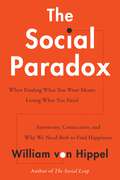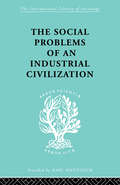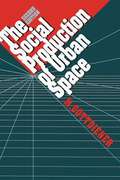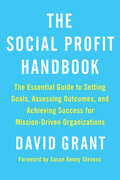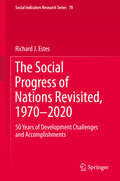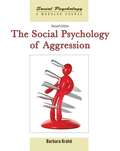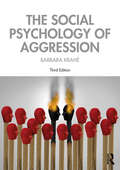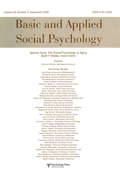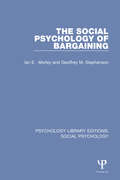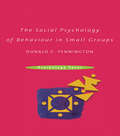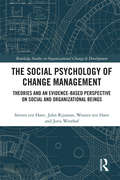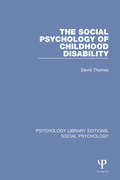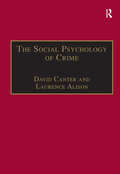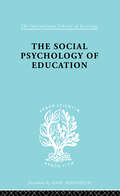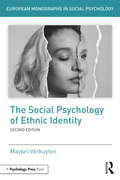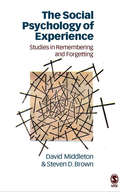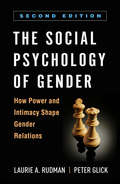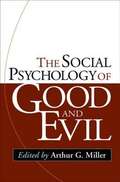- Table View
- List View
The Social Paradox: Autonomy, Connection, and Why We Need Both to Find Happiness
by William von HippelA Next Big Idea Club Must Read of February 2025From the author of The Social Leap comes this thought-provoking exploration into humans’ two core evolutionary needs, for connection and autonomy, how the modern world has thrown them out of whack, and how we can rebalance them to improve our lives.Why do people who have so much—leading comfortable lives filled with unprecedented freedom, choice, and abundance—often feel so unhappy and unfulfilled? This phenomenon is a defining paradox of our time and one we endlessly seek to solve. In The Social Paradox, psychologist William von Hippel argues that we need to think about this problem in a new way. By changing our perspective, we might finally see the solution, bringing us greater happiness and more satisfying relationships.The key is to understand the interplay between our two most basic psychological needs—for connection and autonomy. Evolution made us dependent on one another for survival, instilling in us a strong need to connect. It also made us seek autonomy, so our ancestors could distinguish themselves within their groups, improving their chances to procreate and gain status.These two opposing needs are our most fundamental psychological drivers, and while our lives once ensured a happy balance between them, the opportunities of today’s world have thrown it out of whack. As von Hippel explains, our modern world no longer demands connection but it provides endless opportunity for autonomy; this lopsidedness lies at the root of many of our most intractable problems. Recognizing this imbalance and working to counter it can drastically change how we make decisions, spend our time, and find happiness.The Social Paradox invites us to examine the fundamental building blocks of life and society—politics, religion, urban living, marriage—in a brand-new way. Once we understand the evolutionary forces driving us, we can begin to see how to counteract the emptiness and loneliness of contemporary life.
The Social Pathologies of Contemporary Civilization: Anxiety, Depression And Alzheimer's Disease (Classical And Contemporary Social Theory Ser.)
by Kieran KeohaneThe Social Pathologies of Contemporary Civilization explores the nature of contemporary malaises, diseases, illnesses and psychosomatic syndromes, examining the manner in which they are related to cultural pathologies of the social body. Multi-disciplinary in approach, the book is concerned with questions of how these conditions are not only manifest at the level of individual patients' bodies, but also how the social 'bodies politic' are related to the hegemony of reductive biomedical and individual-psychologistic perspectives. Rejecting a reductive, biomedical and individualistic diagnosis of contemporary problems of health and well-being, The Social Pathologies of Contemporary Civilization contends that many such problems are to be understood in the light of radical changes in social structures and institutions, extending to deep crises in our civilization as a whole. Rather than considering such conditions in isolation - both from one another and from broader contexts - this book argues that health and well-being are not just located at the level of the individual body, the integral human person, or even collective social bodies; rather, they encompass the health of humanity as a whole and our relationship with Nature. A ground-breaking analysis of social malaise and the health of civilization, this book will be of interest to scholars of sociology, social theory, social psychology, philosophy and anthropology.
The Social Politics of Research Collaboration (Routledge Advances in Research Methods #8)
by Gabriele Griffin Katarina Hamberg Britta LundgrenThe past two decades have seen an increasing emphasis on large and interdisciplinary research configurations such as research networks, and centers of excellence including those in Social Sciences and Humanities research. Little research has been undertaken, however, to understand how these new large research structures that are being called forth by research funders and research/higher education institutions alike function socially, and what the impact of operating within such structures is on those working within, and those working with, them. Past writers have discussed the "intra-agentic" operations of human researchers and the material laboratory environment in its broadest sense. This volume is concerned with the social politics of research collaboration in relation to six key positions: leaders of large research formations, leaders of sub-projects within large collaborations, participant researchers, junior and early career researchers, advisory board members, and those who look in from the outside such as researchers who are un-funded. It explores the mostly unacknowledged but critical aspect of social structures in research, discussing issues such as struggles over leadership styles, the marginalization of researchers working cross-disciplinarily, power hierarchies and intellectual ownership, and the silencing of dissent in research.
The Social Problems of an Industrial Civilisation (International Library of Sociology #Vol. 9)
by Elton MayoFirst published in 1998. Routledge is an imprint of Taylor & Francis, an informa company.
The Social Production of Urban Space
by M. GottdienerFrom reviews of the first edition: "This is perhaps the best theoretically oriented book by a United States urban sociologist since the work of Firey, Hawley, and Sjoberg in the 1940s and 1950s.... Gottdiener is on the cutting edge of urban theoretical work today." --Joe R. Feagin, Contemporary Sociology Since its first publication in 1985, The Social Production of Urban Space has become a landmark work in urban studies. In this second edition, M. Gottdiener assesses important new theoretical models of urban space--and their shortcomings--including the global perspective, the flexible accumulation school, postmodernism, the new international division of labor, and the "growth machine" perspective. Going beyond the limitations of these and older theories, Gottdiener proposes a model of urban growth that accounts for the deconcentration away from the central city that began in the United States in the 1920s and continues today. Sociologists, political scientists, economists, geographers, and urban planners will find his interdisciplinary approach to urban science invaluable, as it is currently the most comprehensive treatment of European and American work in these related fields.
The Social Profit Handbook: The Essential Guide to Setting Goals, Assessing Outcomes, and Achieving Success for Mission-Driven Organizations
by David GrantHow to articulate and assess what success looks likeThe Social Profit Handbook offers those who lead, govern, and support mission-driven organizations and businesses new ways to assess their impact in order to improve future work rather than merely judge past performance.For-profit institutions measure their success primarily by monetary gains. But nonprofit institutions are different; they aim for social profit. How do you measure the success of these social profit institutions, where missions are focused on the well-being of people, place, and planet?Drawing upon decades of leadership in schools and the foundation and nonprofit worlds, author David Grant offers strategies—from creating mission time to planning backwards to constructing qualitative assessment rubrics—that help organizations take assessment back into their own hands, and improve their work as a result. His insights, illustrated by numerous case studies, make this book a unique organizational development tool for a wide range of nonprofit organizations, as well as emerging mission-based social venture businesses, such as low-profit corporations and B Corps.The Social Profit Handbook presentsassessment and evaluation not as ends in themselves but as the path toward achieving what matters most in the social sector. The result: more benefits to society and stronger, more unified, more effective organizations prepared to make the world a better place.
The Social Progress of Nations Revisited, 1970–2020: 50 Years of Development Challenges and Accomplishments (Social Indicators Research Series #78)
by Richard J. EstesThis book presents a comprehensive view of the state of social progress worldwide over an entire 50-year period beginning 1970. It discusses original time-series research for the period 1970-2018 as well as contemporary trends in quality of life and well-being research for the period since 2018, and provides innovative research findings into the nature, history, and status of 160 of the world’s economically advanced and developing nations. Among the topics included are discussion of the worldwide development trends occurring with especially vulnerable population groups, such as children and youth, the elderly, women, persons with disabilities, sexual minorities, and economic migrants. Further, this book reports social indicator trends at four unit of analysis: individuals, nations, world regions, and for the world-as-a-whole.
The Social Project: Housing Postwar France
by Kenny CupersWinner of the 2015 Abbott Lowell Cummings prize from the Vernacular Architecture Forum Winner of the 2015 Sprio Kostof Book Award from the Society of Architectural Historians Winner of the 2016 International Planning History Society Book Prize for European Planning History Honorable Mention: 2016 Wylie Prize in French Studies In the three decades following World War II, the French government engaged in one of the twentieth century&’s greatest social and architectural experiments: transforming a mostly rural country into a modernized urban nation. Through the state-sanctioned construction of mass housing and development of towns on the outskirts of existing cities, a new world materialized where sixty years ago little more than cabbage and cottages existed.Known as the banlieue, the suburban landscapes that make up much of contemporary France are near-opposites of the historic cities they surround. Although these postwar environments of towers, slabs, and megastructures are often seen as a single utopian blueprint gone awry, Kenny Cupers demonstrates that their construction was instead driven by the intense aspirations and anxieties of a broad range of people. Narrating the complex interactions between architects, planners, policy makers, inhabitants, and social scientists, he shows how postwar dwelling was caught between the purview of the welfare state and the rise of mass consumerism.The Social Project unearths three decades of architectural and social experiments centered on the dwelling environment as it became an object of modernization, an everyday site of citizen participation, and a domain of social scientific expertise. Beyond state intervention, it was this new regime of knowledge production that made postwar modernism mainstream. The first comprehensive history of these wide-ranging urban projects, this book reveals how housing in postwar France shaped both contemporary urbanity and modern architecture.
The Social Psychology of Aggression
by Barbara KrahéThe fourth edition of this best-selling textbook offers a comprehensive and up-to-date overview of the social psychology of aggression, covering all the relevant major theories, individual differences, situational factors, and applied contexts.The book examines a range of topics that can help us understand the causes, forms, and consequences of aggression and violence in order to better address these harmful forms of social behaviour. Initial chapters cover the definition and measurement of aggression, examine the development of aggression, and cover the role of situational factors in eliciting aggression and the impact of using violent media. The second part of the book focusses on specific forms and manifestations of aggression, including chapters on aggression in everyday life and in the family, sexual aggression, intergroup aggression, and terrorism. The final chapter presents strategies for reducing and preventing aggression. The new edition also includes additional coverage of aggression and violent behaviour that stems from the COVID-19 pandemic, new sections on the transfer of aggression from the virtual to the real world, as well as cyberbullying, online sexual aggression, and aggressive fantasies.Accessibly written and featuring chapter summaries, tasks, and strategies for reducing and preventing aggression, this book is essential reading for students of psychology and sociology who study aggression and violence. It will also be of interest to practitioners working with aggressive individuals and groups, and to policy makers dealing with aggression as a social problem.
The Social Psychology of Aggression (Second Edition)
by Barbara KrahéThe second edition of this textbook provides a thoroughly revised, updated and expanded overview of social psychological research on aggression. The first part of the book covers the definition and measurement of aggression, presents major theories and examines the development of aggression. It also covers the role of situational factors in eliciting aggression, and the impact of using violent media. The second part of the book focuses on specific forms and manifestations of aggression. It includes chapters on aggression in everyday life, sexual aggression and domestic violence against children, intimate partners and elders. There are two new chapters in this part addressing intergroup aggression and terrorism. The concluding chapter explores strategies for reducing and preventing aggression. The book will be essential reading for students and researchers in psychology and related disciplines. It will also be of interest to practitioners working with aggressive individuals and groups, and to policy makers dealing with aggression as a social problem.
The Social Psychology of Aggression: 2nd Edition
by Barbara KrahéThe second edition of this textbook provides a thoroughly revised, updated and expanded overview of social psychological research on aggression. The first part of the book covers the definition and measurement of aggression, presents major theories and examines the development of aggression. It also covers the role of situational factors in eliciting aggression, and the impact of using violent media. The second part of the book focuses on specific forms and manifestations of aggression. It includes chapters on aggression in everyday life, sexual aggression and domestic violence against children, intimate partners and elders. There are two new chapters in this part addressing intergroup aggression and terrorism. The concluding chapter explores strategies for reducing and preventing aggression. The book will be essential reading for students and researchers in psychology and related disciplines. It will also be of interest to practitioners working with aggressive individuals and groups, and to policy makers dealing with aggression as a social problem.
The Social Psychology of Aggression: 3rd Edition
by Barbara KrahéThoroughly revised and updated, this third edition offers a comprehensive and up-to-date overview of the social psychology of aggression, covering all the relevant major theories, individual differences, situational factors, and applied contexts. Understanding the causes, forms, and consequences of aggression and violence is critical for dealing with these harmful forms of social behavior. Addressing a range of sub-topics, the first part deals with the definition and measurement of aggression, presents major theories, examines the development of aggression and discusses individual and gender differences in aggressive behaviour. It covers the role of situational factors in eliciting aggression and the impact of exposure to violence in the media. The second part examines specific forms and manifestations of aggression, including chapters on aggression in everyday contexts and in the family, sexual aggression, intergroup aggression, and terrorism. The new edition also includes additional coverage of gender differences, gun violence, and terrorism, to reflect the latest research developments in the field. Also discussing strategies for reducing and preventing aggression, this book is essential reading for students and researchers in psychology and related disciplines, as well as practitioners and policy makers.
The Social Psychology of Aging: A Special Issue of basic and Applied Social Psychology
by Scott F. MadeyThis special issue highlights how social psychology can further the understanding of important social, health, interpersonal, and intergenerational issues facing people as they age. This issue has three goals: to generate more interest in aging as an area of study for social psychologists by showcasing researchers who are currently integrating basic social psychological research with issues in aging and lifespan development; to challenge readers to think about how their research programs can interconnect with issues in aging; and to demonstrate how social psychological processes have direct application to many of the issues facing people as they age.
The Social Psychology of Bargaining (Psychology Library Editions: Social Psychology)
by Ian Morley Geoffrey StephensonOriginally published in 1977, this book deals with the social psychological factors which influence the process of bargaining. It examines the structure behind the process, by which it can be analysed and better understood. Particular attention is paid to the character of negotiations in which agreements are obtained.
The Social Psychology of Behaviour in Small Groups (Psychology Focus Ser.)
by Donald C. PenningtonThe Social Psychology of Behaviour in Small Groups covers theories of group behaviour and their application in organizational psychology. Topics include the structure and formation of groups and the roles that individuals play within groups, as well as more applied areas such as co-operation and conflict, teamwork, leadership and decision-making in small groups.Throughout the book theory, research and concepts are applied to real-life and everyday social behaviour. The book is well illustrated and includes many mental exercises to engage the reader. Donald Pennington has provided a lively, accessible and systematic text suitable for undergraduates studying social psychology and those studying organizational psychology on psychology and business studies courses.
The Social Psychology of Change Management: Theories and an Evidence-Based Perspective on Social and Organizational Beings (Routledge Studies in Organizational Change & Development)
by Steven ten Have Wouter ten Have John Rijsman Joris WesthofChanges are rarely accomplished by individuals. People are social animals and changes are social processes which have to be organized. Social psychology is essential for the effectiveness and development of the field of change management. It is necessary to understand people in change processes. Social psychology also teaches us that meaning is key during change and intervention. Social psychology makes change management comprehensible to people and allows them to consider their actions in groups and the organization on their merits. They may seem obvious and self-evident, but practice and science, as well as the popular change management literature, show that it is not.Drawing on the field of social psychology and based on primary research, The Social Psychology of Change Management presents more than forty social psychological theories and concepts that are relevant for the field of change management. The theories and concepts are analyzed and categorized following Fiske’s five core social motives; belonging, understanding, controlling, enhancing self, and trusting. Each theory will have an introduction in which its assumptions and relevance is explained.By studying the scientific evidence, including meta-analytic evidence, the book provides practitioners, students and academics in the field of change management, organizational behaviour and business strategy the most relevant social psychological ideas and best available evidence, thereby further unleashing the potential of social psychology in order to feed the field of change management. By categorizing and integrating the relevant theories and concepts, change management is enriched and restructured in a prudent, positive and practical way. The overarching goal, however, inspired by the ideas and perspective of leading thinkers like Kurt Lewin, James Q. Wilson and Susan T. Fiske, is to make the world a better place. Social psychologists (being social scientists) study practical social issues, in our case issues related to change management, and application to real-world problems is a key goal. Therefore, this book goes beyond the domain of organizational sciences.
The Social Psychology of Childhood Disability (Psychology Library Editions: Social Psychology)
by David Thomas‘Some years ago I read the phrase "the spontaneous revulsion to the deformed". The phrase seemed to be both potent and provocative: Was there a spontaneous revulsion to disabilities in children or did such conditions evoke a more compassionate response?’ Originally published in 1978, the problems of the disabled were no longer confined to the medical and educational professionals, but had become the concern of the community as a whole. Using terminology very much of the time, the author shows how attitudes towards different kinds of disability had developed at the time; they varied both regionally and by social class, sometimes calling into question the accepted ‘facts’ about the distribution of a particular condition. Most importantly, the author examines these attitudes together with many other social and psychological factors in relation to their impact on the social behaviour and developing self-image of the disabled child. It becomes clear that the dangers of categorization and the difficulties in overcoming stigma have a profound influence on the education and socialization of disabled children. This book will be of historical interest to students and teachers of psychology, education, social work and rehabilitation; and it will provide insight for parents and all those concerned with the care and development of the disabled child about how far we have come.
The Social Psychology of Crime: Groups, Teams and Networks (Offender Profiling Series #5)
by Laurence AlisonCrime is always part of a social process. In many cases that process determines the form the crime takes. In this ground-breaking book, a wide range of crimes are examined in terms of the social psychological processes that influence the participants and their relationships with each other. Crimes as diverse as fraud and hostage taking are examined from a range of social science perspectives, including broad anthropological perspectives on differences in the structure of criminal cultures as well as the detailed consideration of the roles offenders play in groups and teams of criminals. This book opens up a new area of empirical study of relevance to students of crime as well as law enforcement officers. It will also be of value and interest to all those social scientists who wish to understand how their disciplines can contribute more effectively to the investigation of crime.
The Social Psychology of Education: An Introduction and Guide to its Study (International Library of Sociology #Vol. 23)
by C.M. FlemingFirst Published in 1998. Routledge is an imprint of Taylor & Francis, an informa company.
The Social Psychology of Ethnic Identity (European Monographs in Social Psychology)
by Maykel VerkuytenIn contrast to other disciplines, social psychology has been slow in responding to the questions posed by the issue of ethnicity. The Social Psychology of Ethnic Identity, Second Edition, demonstrates the important and diverse contribution that social psychology can make. Comprehensively updated to include the latest research on dual and multiple identities, mutual links between sense of ethnic identity and social contexts, and the development of ethnic identity in adolescence, this new edition now also features research from non-European cultural contexts, including Turkey, Mauritius and Myanmar. The book shows, on the one hand, that social psychology can be used to develop a better understanding of ethnicity and, on the other hand, that increased attention to ethnicity can benefit social psychology. By filling in theoretical and empirical gaps, Maykel Verkuyten brings an original approach to subjects such as: ethnic minority identity – place, space and time; hyphenated identities and duality; and self-descriptions and the ethnic self. Featuring the latest theoretical ideas and research, the combination of diverse approaches to this burgeoning field make this book invaluable reading for students of psychology and related disciplines, as well as researchers and professionals.
The Social Psychology of Everyday Politics
by Caroline Howarth Eleni AndreouliThe Social Psychology of Everyday Politics examines the ways in which politics permeates everyday life, from the ordinary interactions we have with others to the sense of belonging and identity developed within social groups and communities. Discrimination, prejudice, inclusion and social change, politics is an on-going process that is not solely the domain of the elected and the powerful. Using a social and political psychological lens to examine how politics is enacted in contemporary societies, the book takes an explicitly critical approach that places political activity within collective processes rather than individual behaviors. While the studies covered in the book do not ignore the importance of the individual, they underscore the need to examine the role of culture, history, ideology and social context as integral to psychological processes. Individuals act, but they do not act in isolation from the groups and societies in which they belong. Drawing on extensive international research, with contributions from leaders in the field as well as emerging scholars, the book is divided into three interrelated parts which cover: The politics of intercultural relations Political agency and social change Political discourse and practice Offering insights into how psychology can be applied to some of the most pressing social issues we face, this will be fascinating reading for students of psychology, political science, sociology and cultural studies, as well as anyone working in the area of public policy.
The Social Psychology of Experience: Studies in Remembering and Forgetting (Inquiries in Social Construction series)
by Steven Brown David Middleton`A smart, thoughtful, and well-written book that takes social memory studies in a bold new direction and will attract an audience from across the social sciences for years to come' - Theory & Psychology What informs the process of remembering and forgetting? Is it merely about our capability to store and retrieve experiences in a purely functional sense? What about 'collective memories', not just those of the individual - how do these manifest themselves in the passages of time? The authors present a new, fascinating insight into the social psychology of experience drawing upon a number of classic works (particularly by Frederick Bartlett, Maurice Halbwachs & Henri Bergson) to help develop their argument. The significance of their ideas for developing a contemporary psychology of experience is illustrated with material from studies focused on settings at home and at work, in public and commercial organizations where remembering and forgetting are matters of concern, involving language and text based communication, objects and place. As their argument unfolds, the authors reveal that memories do not solely reside in a linear passage of time, linking past, present and future, nor do they solely rest within the indidvidual's conciousness, but that memory sits at the very heart of 'lived experience'; whether collective or individual, the vehicle for how we remember or forget is linked to social interaction, object interaction and the different durations of living that we all have. It is very much connected to the social psychology of experience. This book is written for advanced undergraduate, masters and doctoral students in social psychology. However, it will also be of particular value on courses that deal with conceptual and historical issues in psychology (in cognate disciplines as well) and supplmentary reading in cognitive science.
The Social Psychology of Gender, Second Edition: How Power and Intimacy Shape Gender Relations (Texts In Social Psychology Ser.)
by Peter Glick Laurie A. RudmanNoted for its accessibility, this text--now revised and updated to reflect a decade of advances in the field--examines how attitudes and beliefs about gender profoundly shape all aspects of daily life. From the schoolyard to the workplace to dating, sex, and marriage, men and women alike are pressured to conform to gender roles that limit their choices and impede equality. The text uses real-world examples to explore such compelling questions as where masculine and feminine stereotypes come from, the often hidden ways in which male dominance is maintained, and how challenging conventional romantic ideals can strengthen heterosexual relationships. New to This Edition *Chapter on the sexualization of women's bodies, and resistance to it (including #MeToo). *Chapter on the harmful effects of "real man" ideology. *Numerous new examples drawn from current events. *Updated throughout with the latest theories, research, and findings.
The Social Psychology of Good and Evil
by Arthur G. MillerThis compelling work brings together an array of distinguished scholars to explore key concepts, theories, and findings pertaining to some of the most fundamental issues in social life: the conditions under which people are kind and helpful to others or, conversely, under which they commit harmful, even murderous acts. Covered are such topics as the complex interaction of individual, societal, and situational factors underpinning good or evil behavior; the role of guilt and the self-concept; and issues of responsibility and motivation, including why good people do bad things. The volume also examines whether aggression and violence are inescapable aspects of human nature, and how cooperative interaction can break down stereotyping and discrimination.
The Social Psychology of Good and Evil, Second Edition
by Arthur G. MillerThis timely, accessible reference and text addresses some of the most fundamental questions about human behavior, such as what causes racism and prejudice and why good people do bad things. Leading authorities present state-of-the-science theoretical and empirical work. Essential themes include the complex interaction of individual, societal, and situational factors underpinning good or evil behavior; the role of moral emotions, unconscious bias, and the self-concept; issues of responsibility and motivation; and how technology and globalization have enabled newer forms of threat and harm. New to This Edition *Many new authors; extensively revised with the latest theory and research. *Section on group perspectives, with chapters on bystanders to emergencies, remembering historical victimization, organizational dynamics, and globalization and terrorism. *Chapters on free will, conscious versus unconscious processes, media violence, dehumanization, genocide, and sexual violence. *Chapters on false moral superiority, compassionate goals in relationships, and moral emotions in incarcerated offenders.
